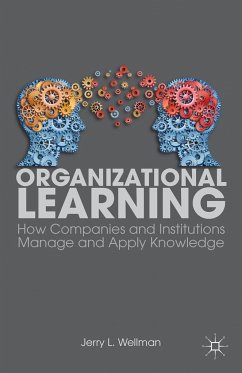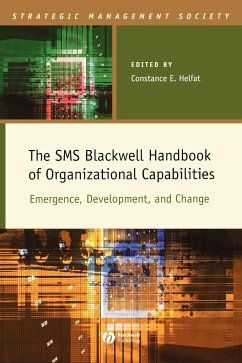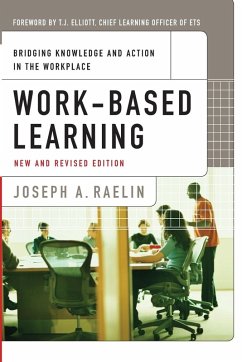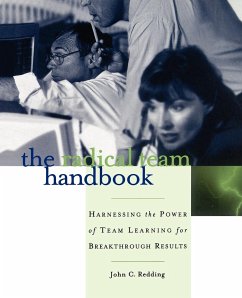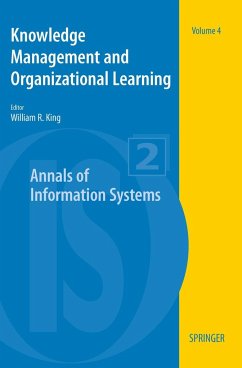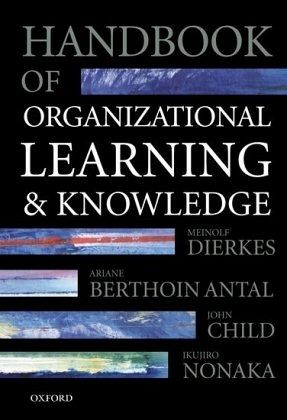
Handbook of Organizational Learning and Knowledge
Versandkostenfrei!
Versandfertig in über 4 Wochen
154,99 €
inkl. MwSt.

PAYBACK Punkte
77 °P sammeln!
In an era of far-reaching changes, organizational learning and knowledge creation are high on the agenda of social scientists, managers, and consultants worldwide as they seek to adapt to new environments.This work provides a comprehensive overview of how the concept of organizational learning emerged, how it has been used and debated, and where it may be going. It summarizes the state of the art and provides a full account of the diverse approaches, themes, issues, and debates of the field. The handbook unites a team of international authors, who examine both the central themes and key emergi...
In an era of far-reaching changes, organizational learning and knowledge creation are high on the agenda of social scientists, managers, and consultants worldwide as they seek to adapt to new environments.
This work provides a comprehensive overview of how the concept of organizational learning emerged, how it has been used and debated, and where it may be going. It summarizes the state of the art and provides a full account of the diverse approaches, themes, issues, and debates of the field. The handbook unites a team of international authors, who examine both the central themes and key emerging issues. The coverage extends beyond the American tradition to include the experiences of Europe, Asia, and the Middle East.
The book opens with chapters drawing insights from various social science approaches. The following sections examine fundamental issues concerning the external triggers, factors and conditions, agents, and processes of organizational learning. Subsequent chapters review the subject within a global context, looking in particular at processes of interorganizational learning and knowledge transfer.
This work provides a comprehensive overview of how the concept of organizational learning emerged, how it has been used and debated, and where it may be going. It summarizes the state of the art and provides a full account of the diverse approaches, themes, issues, and debates of the field. The handbook unites a team of international authors, who examine both the central themes and key emerging issues. The coverage extends beyond the American tradition to include the experiences of Europe, Asia, and the Middle East.
The book opens with chapters drawing insights from various social science approaches. The following sections examine fundamental issues concerning the external triggers, factors and conditions, agents, and processes of organizational learning. Subsequent chapters review the subject within a global context, looking in particular at processes of interorganizational learning and knowledge transfer.








